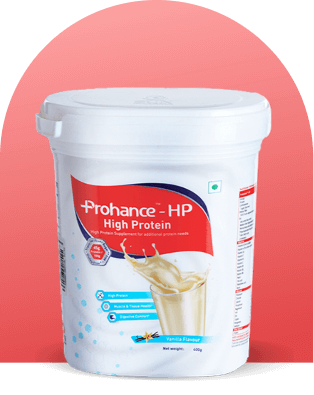
If you’re approaching surgery, it’s completely normal to experience anxiety. However, it’s essential to be aware that surgery-related stress can frequently lead to a decrease in appetite. Additionally, post-surgery dietary restrictions can pose challenges for the recovery process by limiting food intake.
Don’t worry, though! We’ve got you covered with these effective appetite-boosting strategies:
The above overall guidelines will be helpful for adults who are undergoing elective surgeries like getting kidney stones removed or other smaller procedures to regain their appetites(2). In many cases, your hunger pangs will return after the effects of the anaesthesia has worn off and the pain killer or antibiotic course has been completed, as per the nature of the procedure and your specific medical condition.
Try the Nutrition Calculator to get detailed insight on your daily meal
After non-abdominal surgeries like joint replacements, caesarean sections, organ replacements, hysterectomies, or heart surgeries, it may take a few days to a week for your appetite to return to normal. But if you’ve had an abdomen-related surgery like sleeve gastrectomy or gastric bypass, things are different. Studies show that up to 55% of patients experience partial to total appetite loss for up to 2 weeks after the operation (3). This interruption in ingestive processes can delay the resumption of your appetite.
Certain long-term or serious conditions are known to trigger reduced appetite. Studies have established that appetite loss can be related to not feeling well, lowered immune system function, or an upset stomach. Medical diseases that can cause appetite loss are digestive conditions such as Crohn’s disease or irritable bowel syndrome, Addison’s disease, asthma, diabetes, hypothyroidism, COPD (Chronic Obstructive Pulmonary Disease), chronic liver or kidney disease, HIV (Human Immunodeficiency Virus), and AIDS (3).
Appetite loss after major surgeries: In other categories you may have a condition that is long-term like a type of cancer, a tumour, fibroids, or an infection that requires an operation. Also, you may experience appetite loss due to difficulty in swallowing and eating can be painful even with an empty stomach (1). Your condition may cause symptoms such as stress, depression, dehydration, nausea, and or pain, which kills your appetite for a longer time. Generally, the enlisted guidelines can be effective when they are followed in the company of loved ones, friends, or with a support group. For conditions that are more severe, your specialist can provide a revised set of meal guidelines to enhance your food intake.
Consult Now & get personalized guidance to improve your health and wellbeing
After surgery, the first step is managing the symptoms you are experiencing, before you can regain your appetite. Your doctor may deal with the symptoms holistically, or address each symptom individually, depending on your medical history.
As you prepare to leave the hospital after surgery or illness, prioritise the intake of essential proteins to support your healing process during your post-hospital recovery.
Maintaining proper nutrition is vital for strengthening your immune system and enabling it to combat infections effectively. Rapid weight loss can result in muscle depletion, which can weaken you during the recovery phase. To ensure a swift and successful rebound, make sure to meet your specific nutritional requirements with the appropriate protein intake.
Jumpstart your path to recovery with Prohance HP supplement, your key to achieving balanced nutrition. This exceptional high-protein supplement is enriched with essential vitamins, fibers, and minerals, making it the perfect choice for elevating energy levels during post-illness or post-surgery recuperation. It’s also an excellent option for hospitalized patients, ensuring a swift recovery.
Why opt for Prohance HP? It’s a sugar-free, gluten-free, and trans-fat-free vegetarian formula, making it a secure choice for individuals with diabetes. With its specially crafted combination of whey protein concentrate, maltodextrin, and MCT (medium-chain triglycerides), it offers gentle digestive support. (6)
Let Prohance HP become your trusted companion on the journey to renewed health and recovery!
